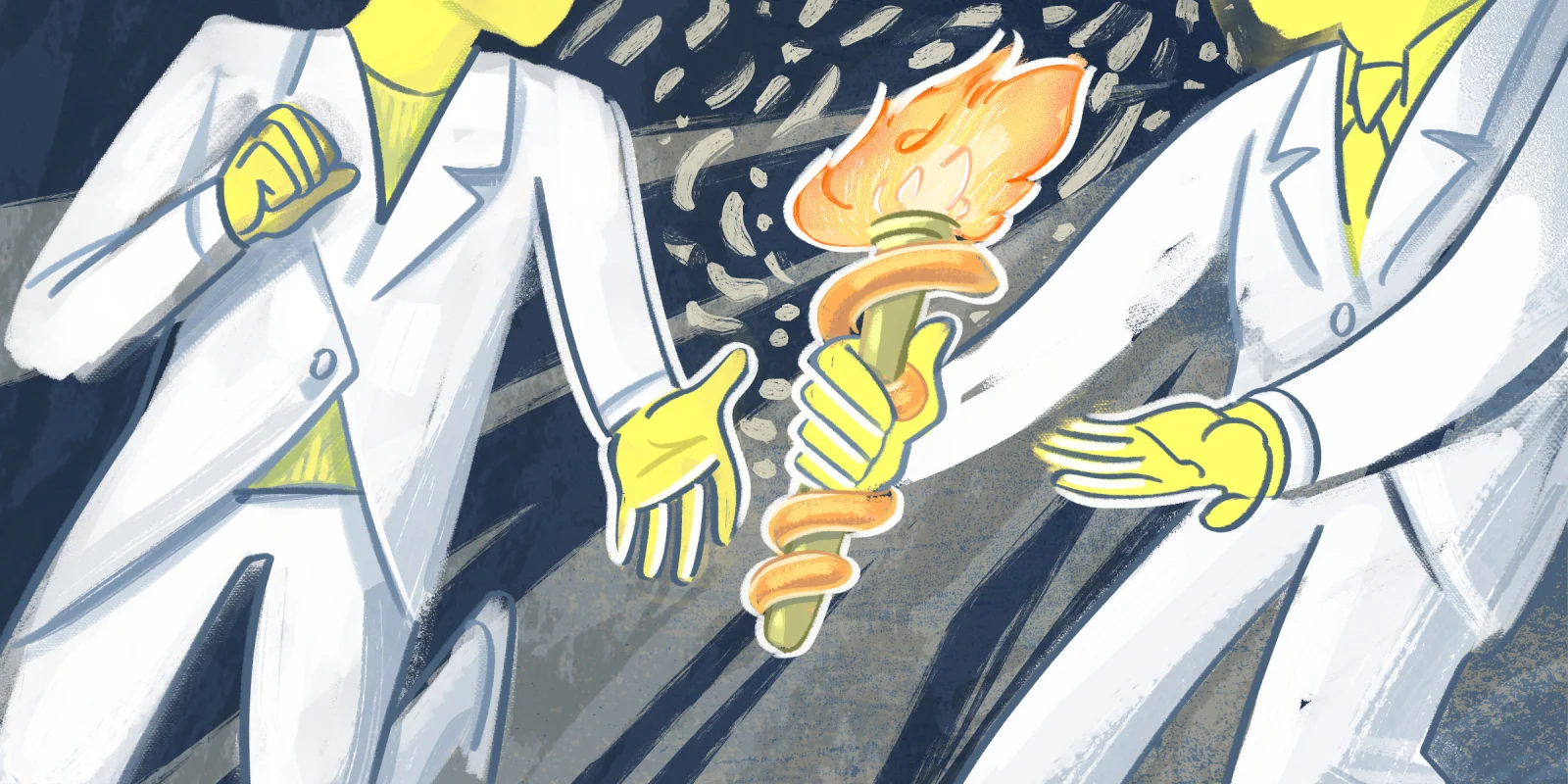By the time the average doctor can practice in their specialty, they have been learning for more than two decades. Learning, however, is a lifetime pursuit for physicians and the formative years of medical education — including medical school, residency, and fellowship — serve as the building blocks for this lifelong pursuit. Since learning carries so much significance in the personal journey of a physician, this raises the question: What makes a good teacher in the medical field?
When I think of how I might answer this question, I think of Dr. F-S. The first time I met Dr. F-S was when he embodied the role of an anatomy instructor during my first year of medical school. Every morning, he greeted our anatomy class with a big smile, enthusiastic for the opportunity to teach. What amused me was that his happy countenance became steely, almost stoic-like each time he emphasized an important learning point, as if he were reflecting on the weight of the information he was conveying, something I don't think he realized but that had a lasting effect on his learners.
Throughout my life, I have prided myself on being an eager learner, and my enthusiasm to learn was further fanned by Dr. F-S's passion to teach. A good teacher, however, is able to recognize when someone needs a push and steps in to offer guidance and a nudge in the right direction. One of my most vivid memories from medical school involves the day we dissected the spine on our cadaveric donor. As most medical students will recall, this memory is plagued by the pungent sulfuric scent of dissecting bone and the clamorous racket of power tools used to saw through the thick protective spine. For me, this day was memorable for other reasons. As my lab partners and I began to dissect the spine, Dr. F-S approached our table. He somehow noticed that I was the only woman in my group of three men, looking on in anticipation as my wide-eyed colleagues prepared the power tools for dissection. In that moment, Dr. F-S asked for the electric saw, handed it to me, and demonstrated how it worked as he led me to make the first cut. I have often wondered exactly what it was in me that moved Dr. F-S to approach my anatomy table that day, but whatever the reasoning, I am extremely grateful for it. Since that day, there have been many moments where I have been the only woman in a group of competitive and deserving male colleagues. It is educators like Dr. F-S whose belief and encouragement have laid the foundation for the confidence I am able to carry myself with when navigating such situations today.
Being a physician is defined by a deep understanding of the vast pathology and pathophysiology that underlies medical diagnoses. When I was an MS2, it was Dr. F-S’s job to help our class develop this understanding. I appreciated the meticulousness Dr. F-S took in crafting his Powerpoint slides, but more than that, I appreciated that when some of his slides were too complex for medical students to follow, he changed them, modifying his teaching style despite years of experience. This leads me to my second point: a good teacher meets the needs of the learner. Dr. F-S listened to our feedback in real time and made his slides more conducive for learning by condensing the material and adding summary points, making “drinking from a fire hose,” that much easier.
Finally, a good teacher is one who selflessly gives their wisdom away. At the end of my medical school career, I happened across a personal note he wrote on a copy of Frances Peabody’s “The Care of a Patient,” a graduation present gifted to each member of my medical school’s graduating class. This is Dr. F-S’s message. It would be a shame to keep it all to myself:
One of the most amazing truths about being a physician centers around the word ‘trust!’ Foremost in this regard is the trust given to you by the patient. Treasure this trust always, from your first day as a physician to your last day. Secondly, nurture and trust your inner voice, and when in doubt, search for help, so you can sleep at night. Finally, hope and trust in the goodness of every person around you, so that you smile every day. – Dr. F-S.
Now I know why he always walked into class with a smile on his face.
What qualities do you think makes someone a good teacher? Praise your favorite teachers in the comments.
A native New Yorker, Dr. Babar is passionate about classic literature, studying novel advancements in medical therapy, and helping younger generations foster a shared curiosity for all things science. Dr. Babar is a 2021–2022 Doximity Op-Med Fellow.
Illustration by April Brust






